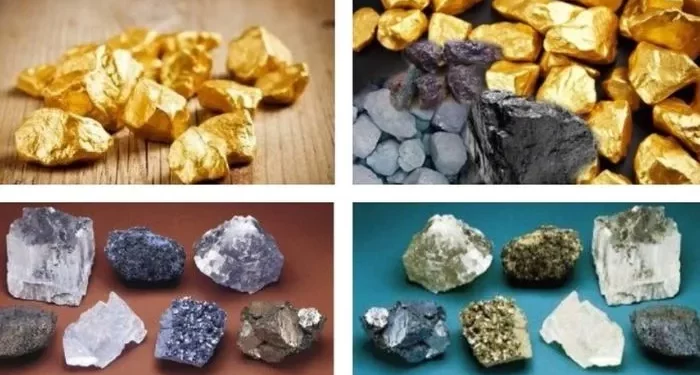Ghana: Mineral export revenue rises to $6.9bn
The Mining and Oil/Gas EITI reports were officially launched by the Multi-Stakeholder Group (MSG) of the Ghana Extractive Industries Transparency Initiative (GHEITI), a tripartite body comprising representatives from the government, industry, and civil society.

Proceeds from Ghana’s mineral exports saw a notable increase in 2020, reaching US$6.998 billion, according to the 2022 Extractive Industries Transparency Initiative (EITI) Mining & Oil and Gas report. This figure represents a 4.8 percent year-on-year expansion in mineral revenue, underscoring the country’s growing prominence in the global extractive industry landscape. The report further highlighted that mineral exports accounted for 48.4 percent of Ghana’s total merchandise export revenue in 2020, reflecting the significant contribution of the mining sector to the country’s economic growth.
While Ghana’s mineral sector experienced an overall positive trajectory in terms of revenue, the report unveiled contrasting performance trends across different commodities. Notably, the total volume of gold produced experienced a downturn of 12 percent, declining from 4.577 million ounces in 2019 to 4.023 million ounces in 2020. Similarly, the volume of manganese produced by the Ghana Manganese Company (GMC) witnessed a significant drop, plummeting from 5.383 million tonnes in 2019 to 2.358 million tonnes in 2020, representing a decrease of 56 percent.
- Advertisement -
On the other hand, the volume of bauxite production demonstrated a positive growth trajectory, increasing from 1.116 million tonnes in 2019 to 1.162 million tonnes in 2020, recording a 4 percent year-on-year expansion in its output. This upward trend in bauxite production signals the potential for further development and investment in Ghana’s bauxite industry, which could contribute to the country’s economic diversification and sustainability.
- Advertisement -
The Mining and Oil/Gas EITI reports were officially launched by the Multi-Stakeholder Group (MSG) of the Ghana Extractive Industries Transparency Initiative (GHEITI), a tripartite body comprising representatives from the government, industry, and civil society.
As the responsible entity for steering the affairs of GHEITI, the MSG oversees the publication and dissemination of the reports, providing stakeholders with comprehensive insights into the extractive industries’ operations and contributions to Ghana’s economy. It is worth noting that the production of these reports was made possible through funding from the World Bank under the Extractive Global Programmatic Support (EGPS) Grant.
- Advertisement -
With the release of the 2020 reports, Ghana has now produced and published a total of nineteen mining reports since its initial adherence to the EITI initiative in 2003. In terms of the oil and gas sector, the 2019 report marks the tenth publication since the EITI framework expanded its coverage to encompass this vital industry in 2010. By adhering to the 2019 EITI Standard, Ghana’s reports go beyond the mere financial reconciliation of payments and receipts.
They encompass a wide range of contextual information, including a summary description of the legal framework and fiscal regime, the sector’s overall contribution to the economy, production and export data, state participation in the extractive industries, revenue allocations, sustainability of revenues, license registers, and allocation details, among other requirements stipulated by the Standard.
The joint launch of the reports was graced by the Minister of State at the Ministry of Finance, who also serves as the Champion for GHEITI, and the Deputy Minister of Lands and Natural Resources responsible for Mining, Hon. George Mireku Duker. Their presence at the launch signifies the government’s commitment to transparency, accountability, and responsible management of Ghana’s extractive resources.
As Ghana continues to navigate the complexities of the extractive sector, it is expected that these reports will inform policy decisions, drive investment opportunities, and foster sustainable growth in the mining and oil/gas industries, contributing to the overall socioeconomic development of the country.
Source: norvanreports
- Advertisement -



